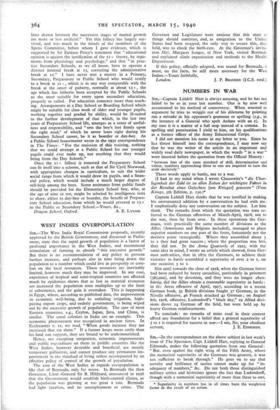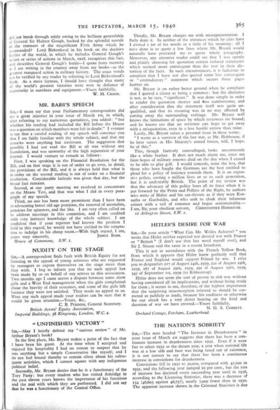Sia,—In the correspondence on the above subject in last week's
issue of The Spectator, Capt. Liddell Hart, replying to General Edmonds, makes the following quotation from one General: " But, even against the right wing of the Fifth Army, where the numerical superiority of the Germans was greatest, it was not sufficient to break through." He goes on to say that novelty and brilliance of tactics cannot make up for " in- adequacy of numbers," &c. Do not both those distinguished military critics and historians ignore the fact that Ludendorff, though with a numerical superiority of more than three to one, * Superiority in numbers has in all times been the weightiest factor in the result of an action. did not break through solely owing to the brilliant generalship of General Sir Hubert Gough, backed by the splendid morale of the remnant of the magnificent Firth Army which he commanded? Lord Birkenhead in his book on the decisive battles of the world, in which he includes General Gough's action or series of actions in March, 1918, recognises this fact, and describes General Gough's battle—I quote from memory as I am writing in the country away from my books—as the greatest rearguard action in military history. The exact words can be verified by any reader by referring to Lord Birkenhead's book. As a mere layman, I should have thought that many of the world's greatest victories were won in defiance of superiority in numbers and equipment —Yours faithfully, W. M. CROOK. W. M. CROOK.























































 Previous page
Previous page